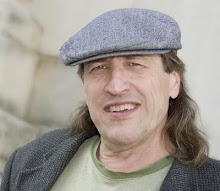Tuesday, January 01, 2013
With each release of Hobbit-related movies, director Jackson shows just how little
he understands of the Hobbit mythology, insisting on turning classic fantasy
into trashy sword and sorcery.
Although financially very successful, the Lord of the Rings
sequence worked for the most part because Jackson
stuck to the script laid out by visionary JRR Tolkien, and the movies failed
for the most part where he deviated and decided that he could impose his own
vision on the original work.
Because he mostly stuck to the original in the original
trilogy, the movies worked.
This cannot be said for the first of the second trilogy, The
Hobbit, in which Jackson
has basically abused the original story to a point where it more resembles one
of those icky Transformer movies than a tale of magic.
Worse still is the fact that he had a body of back story that
could have helped make The Hobbit a good companion pieces rather than a summer
block buster released at the wrong time of the year, silly and forgettable.
The best parts – and there are only three – are those
closest to the book, and I don’t mean the opening sequence that takes us back
to the party scene of the first trilogy. I mean the unexpected party scene with
the dwarves, to a lesser degree the scene with the trolls, and, of course, the
master scene of the Gollum and finding of the ring.
Jackson screwed up pretty much the rest of the movie because
as he has in the past he decided he knew better than Tolkien and imposed his
own trivial vision onto what was fundamentally a solid fairy tale, trying to
turn it into a myth – which he could have done had he paid attention to the
materials he actually had, including things said in both collects of books to
which he had already purchased rights.
His version starts out as a frame tale with Bilbo Baggins
during the opening scenes of the Lord of the Rings finally telling the true
tale of how he found the rings, goes through the introduction of the wizard and
the dwarves before they rush off onto an adventure, flash back to the war
between goblins and Dwarves at Moria, meet the trolls, collect their swords,
meet Radigast the wizard who has come to warn them about the evil rising in the
mirkwood, have a fight with Wargs, come to Rivendell (where the great wizards
discuss the meaning of radigast’s vision), sneak off into the mountains where
they are waylaid by giants, come into the caves where they are taken prisoner
(with the exception of Bilbo who sneaks away and Gandalf who is still in
pursuit of them), fight the goblins while Bilbo finds the ring, escape the
mountains to be attacked by wargs again, and rescued finally from the trees
where they have taken refuge by great eagles.
The first warg battle is simply filler material, and largely
a waste of time, and the great battle in the mountain is so terrible as to be
laughable if I wasn’t so busy crying over how much more time Jackson wasted making it seem like a cartoon.
The real tragedy is how badly Jackson handled the
mythological elements he should have used to build the real back story – as to
how he got the key to the lonely mountain where the great dragon Smaug waited
at the end of this fairy tale and how this all fit into the mythology of the
original trilogy.
Gandalf always had an interest in the great rings and was
already concerned about the head of his order of wizards, Saruman, which is why
he held back knowledge of finding the great ring later. But it was his search
for the lesser rings of the dwarves that caused him to be captured by the
Necromancer prior to the opening of The Hobbit. There he found one of the great
dwarves in prison, after the Necromancer (Sauron) had tortured him long and
taken the ring.
This should have been the opening scene of the Hobbit and
Gandalf’s escape – although Jackson could not use the material in which Gandalf
met the dwarves for the first time in Bree (because Jackson didn’t own rights
to that book), the story should have made clear that there were other reasons
why Gandalf pursued their venture, somehow suspecting that the Great Ring of
power was involved, and that somehow Bilbo was meant to find it.
Whereas Jackson
wasted the council of Wizards scene, the original back story had them well
aware of the dark lord’s rise in the Mirkwood as they argued over whether or
not this was really him. Jackson’s weak effort to have Saruman discourage
Gandalf into believing the necromancer is actually Sauron may simply have been
a foreshadowing, but it hardly represented the power struggle ongoing in the
counsel, for who should lead the investigation, or showed the mistrust some
members already felt about Saruman, who some suspected sought the great ring
for his own uses.
This political conflict was starkly missing from the first
of this new trilogy although it may later evolve, as Gandalf will later venture
into the Mirkwood to confront the Necromancer in the second or third film.
Hopefully, Saruman will become more clearly the evil force he will later become
in the Lord of the Rings. But it is clear from the first installment of The
Hobbit and his misuse of material in The Lord of the Rings, Jackson lacks the subtle touch for such work
when deviating from script JRR Tolkien set out, wasting his time on ludicrous
fight scenes while missing the heart of the real conflicts ongoing in his
source material.



